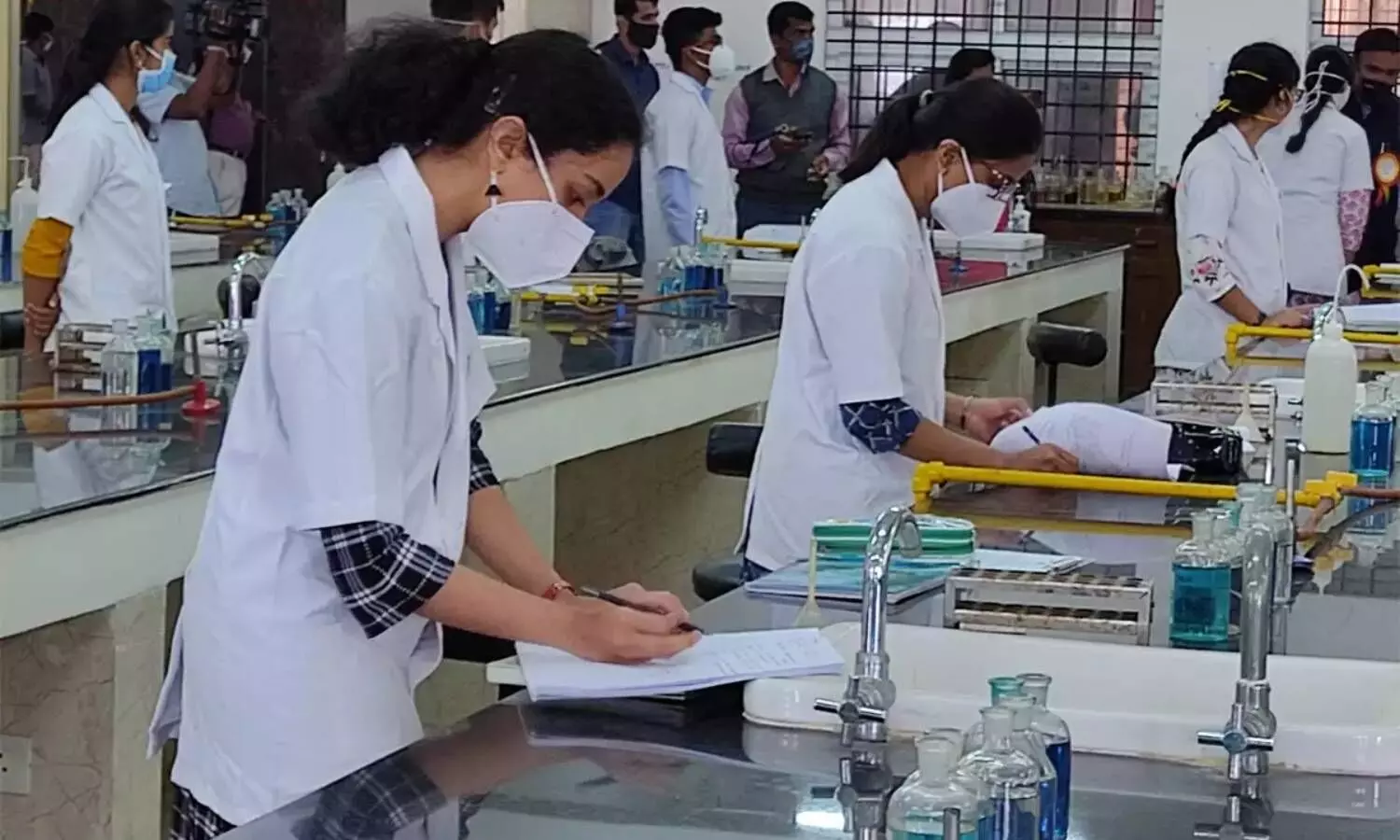Interview: Look beyond MBBS; so many doctors are unemployed: KNRUHS VC Dr. Reddy
In an interview with NewsMeter, Dr. Reddy discussed his vision for streamlining medical education in the state and country. He also made observations on the need to look beyond MBBS for a career. Excerpts
By Sulogna Mehta
Vice-chancellor of Kaloji Narayana Rao University of Health Sciences (KNRUHS), Telangana, Dr. B Karunakar Reddy, was recently appointed a part-time member of the National Medical Commission (NMC) for two years.
According to his new job profile, Dr. Reddy can send recommendations to the government on various aspects and requirements of Health and Medical Education at the state and national level.
In an interview with NewsMeter, Dr. Reddy discussed his vision for streamlining medical education in the state and country. The affordability of medical education, changes in curriculum, and the NEXT exam for medical graduates were at the heart of the discussion. He also made observations on the need to look beyond MBBS for a career. Excerpts
NewsMeter: Medical education in India is very expensive. Students go abroad to study in countries where it is affordable. What is your take?
Dr. Reddy: In Telangana like many other states, we have now made 85 % of reservations for local students in the B Category (Management quota). Last year, when this reservation was not applicable, the last rank in NEET that secured a management quota seat (B category) was 2.71 lakh whereas, this time, the last rank to secure a management quota seat (B category) is 8.68 lakh. Therefore, there is no requirement for students to go to countries like China, Russia, and Ukraine for MBBS. Unfortunately, less than 15% of `foreign-educated' students can clear the NMC exam for registration, practice, and pursue higher education in India. The cost of studying under the B category quota is Rs 11.5 to Rs 13 lakh per year, which would be less than studying abroad. However, the NRI quota or C Category quota costs double that of the B category and it is not advisable to study under this category by raising loans. Also, in private medical colleges, 50 % of seats are under the convener quota and their tuition fees are capped at just Rs 60,000 annually. The annual tuition fees at various government medical colleges are around Rs 10,000 only.
NewsMeter: What about the craze associated with MBBS?
Dr. Reddy: The problem with Indian parents, especially in the South, is that notwithstanding the financial capability and aptitude of their children, they want the students to pursue either medical or engineering courses out of hundreds of career options. They don't realize what the students will do after MBBS. Not everyone can get through PG immediately as there are fewer seats compared to MBBS, particularly in clinical subjects. Just like several engineering graduates, even medical graduates have to stay unemployed with a huge loan burden. Some students (Around two percent of students) are not able to even clear the first year of MBBS even after a maximum of four attempts leading to the cancellation of seats. Some students are dropping out of college unable to cope up with the workload of MBBS study. Some seats are wasted every year. Moreover, in the next 10 to 15 years, Artificial Intelligence (AI) powered machines will take up most of the tasks of diagnosis and preliminary treatment. So, students should branch out to diversified career options related to health sciences.
NewsMeter: How beneficial are the recent changes in the medical curriculum?
Dr. Reddy: More emphasis is now being given to psychology and communication skills right from the first year. Basic computer knowledge is a prerequisite, and Ethics, as a subject is being taught. The NEXT exit exam for medical graduates will usher uniform standards in the assessment of every student, all over the country, at the same time. The questions will be analytical, case-history, or problem-oriented where the thinking ability of the students will be tested and they will be discouraged from rote learning," he avers.
At present Telangana state has 42 medical colleges including 17 colleges in the government sector.